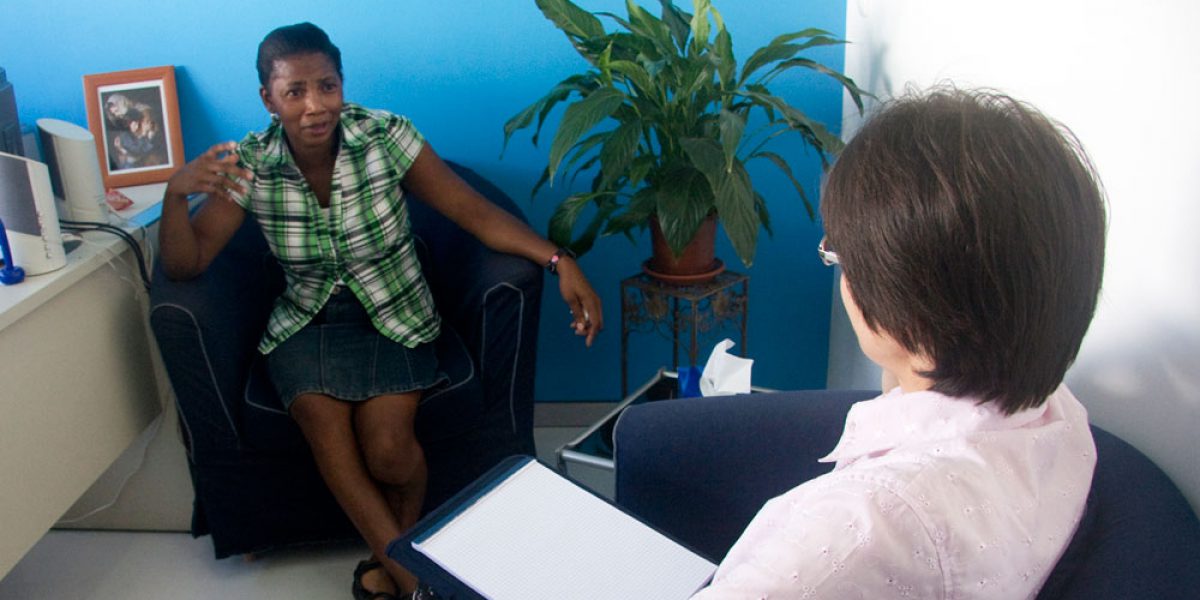Portugal: Mental Health Support Against a Backdrop of Destitution and Exclusion
23 November 2013|Maria José Rebelo, Clinical Psychologist, JRS Portugal

Even though Portugal has not historically been a country of destination for refugees, most of the forced migrants served by the Jesuit Refugee Service in the country are in need of international protection. Like recognized refugees, forced migrants escaping extreme poverty frequently struggle with mental health issues, and in the case of forced migrants often become destitute.
Since 1998, JRS Portugal has supported forced migrants by providing social, legal, employment, health, and accommodation services. Aware of the growing mental health concerns of many forced migrants, in 2007 JRS decided to expand general health services to include mental health support for more than 400 individuals. Of this group, many were living in destitution and some were unsuccessful asylum applicants.
Mental Health
Data collected by JRS since 2007 and academic studies undertaken by independent researchers confirm a strong correlation between the social, legal and/or employment status of refugees and other forced migrants and their mental health status. Research on migration and mental health has repeatedly highlighted how a downward spiral in social status, associated with a lack of individual control over one’s life, has a damaging impact on his or her mental health. In addition, the severity of the impact on one’s mental health depends on the number, intensity and duration of stressors endured by refugees and other forced migrants.
In addition to the stress factors already inherent to the migratory process, the situation deteriorates rapidly when forced migrants realize they are no longer legally entitled to remain in the country or take up employment, and thus have no way of meeting the needs of their families. In such circumstances, the physical and mental health of forced migrants suffers greatly.
Poverty and Social Isolation
The experience of the JRS Portugal mental health team reveals that many migrants referred for psychological support were often unemployed, undocumented, and economically and socially marginalized. They were at serious risk of exploitation in the labor market and regularly lived in unsanitary conditions.
The clinical work undertaken by staff in the mental health team has demonstrated that these stress factors have a detrimental impact on the mental well-being of migrants, often leading to depression and anxiety, as well as feelings of grief and loss, loneliness, isolation, guilt, powerlessness. Over the years the team has also witnessed the enormous capacity of migrants to endure psychological suffering and their motivation to improve their lives and those of their families who have frequently remained in their countries of origin.
In these circumstances, it is important that those working with forced migrants in vulnerable situations avoid adopting purely medical/psychiatric approaches that focus on the symptoms of their malaise. This is why in JRS Portugal all the departments work together in a cooperative and multifaceted manner. Those responsible for preventing destitution and/or helping migrants regularize their legal status, work closely with the mental health team. The opposite is equally true, it is essential that the employment support team is aware of the social and cultural backgrounds and the physical and mental health of migrant beneficiaries.
However, important as it is, targeted support in the areas of health, education and healthcare depends a great deal on the individual coping capacities of migrants. Therefore, JRS Portugal has made a conscious effort to help strengthen the natural support mechanisms of forced migrants.
Often overlooked is the belief system and faith community, which can be a huge source of strength to many migrants. JRS teams have found that one truly important coping mechanism for these persons is their faith in God. This sense of belonging acts as a tool of protection.
In other words, it gives them the strength get through this difficult period. Given that little will be done for forced migrants in the short run by the national or European authorities to address the root causes of the difficulties associated with legal status and their socio-economic marginalization, offering a welcoming and safe environment will make the difference for many people in difficult circumstances.
